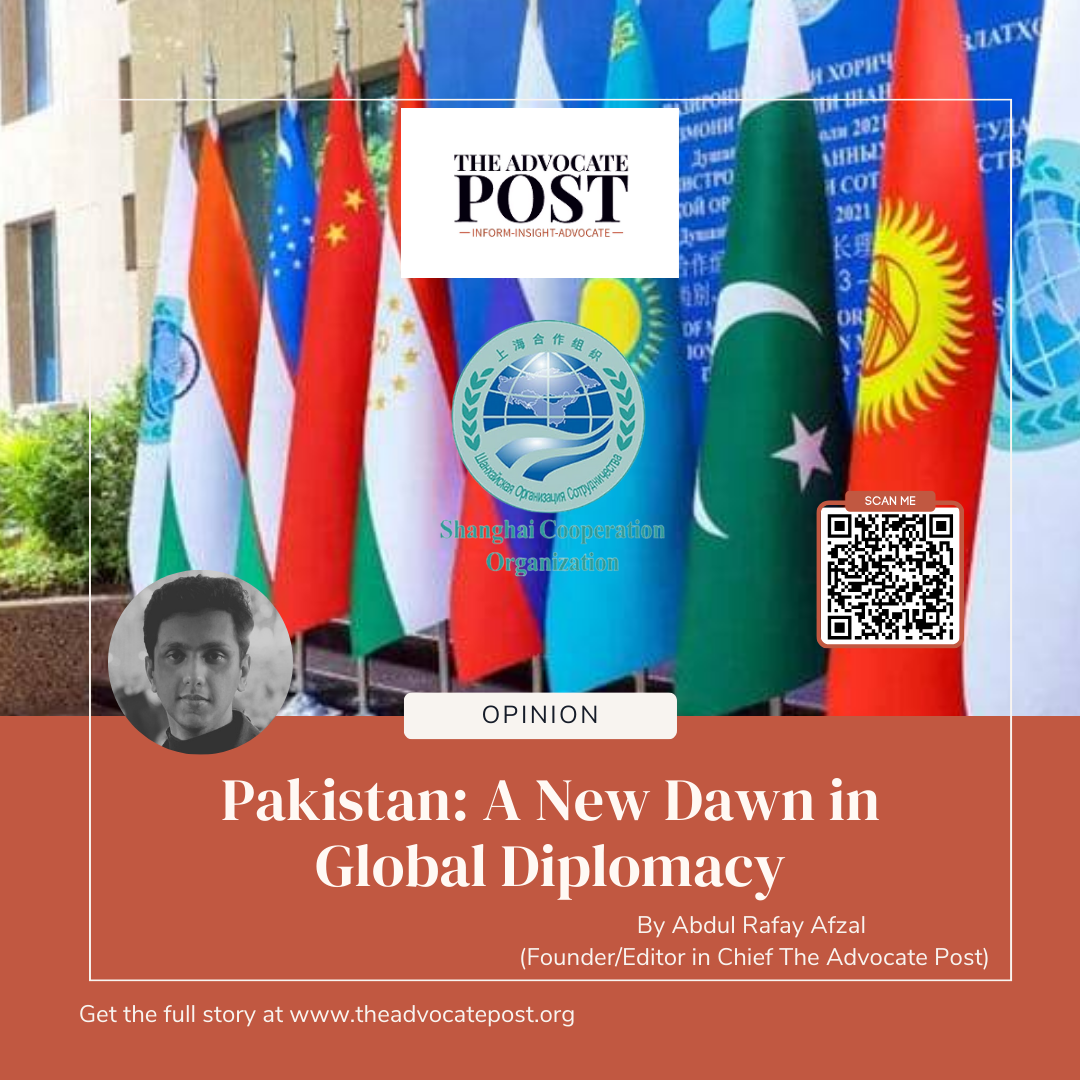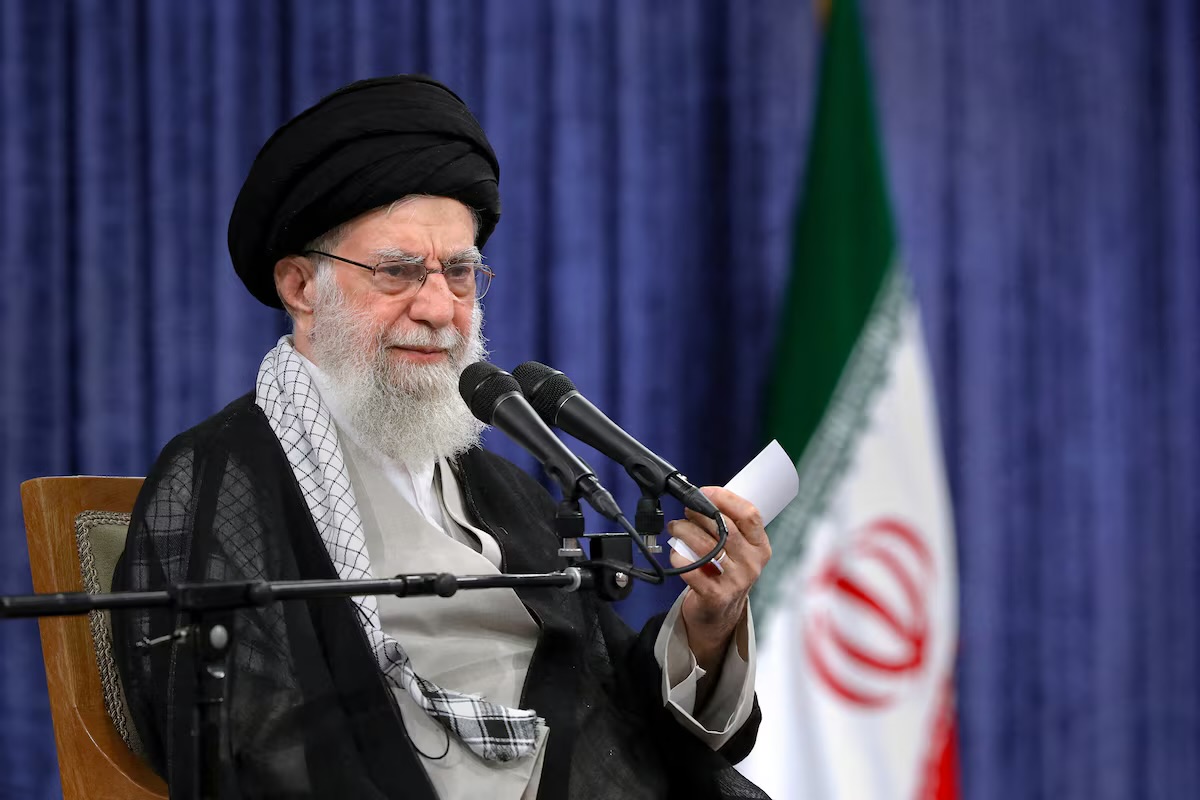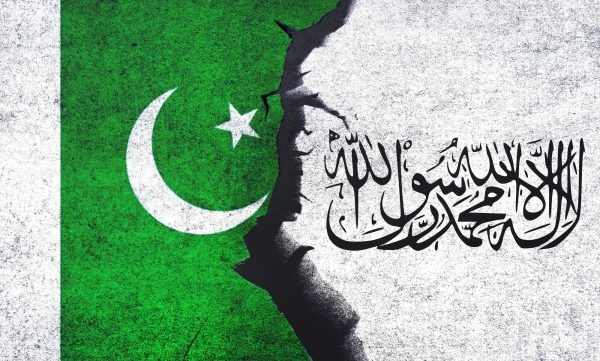By Abdul Rafay Afzal (Founder/Editor in Chief – The Advocate Post)
In a historic moment for Pakistan, the nation successfully hosted the Shanghai Cooperation Organisation (SCO) summit in Islamabad this October. The significance of this event cannot be understated, as it marks Pakistan’s return to the global stage after years of isolation and turmoil. The successful summit is a testament to Pakistan’s resilience and its determination to carve out a prominent role on the international stage.
The past decade has been particularly challenging for Pakistan. Political instability, economic crises, and security concerns pushed the country into a precarious situation. The isolationist policies and internal turmoil severely limited Pakistan’s ability to engage effectively with the global community. International relations were strained, and economic indicators hit rock bottom. The country’s international standing suffered, and its potential seemed overshadowed by the prevailing crises.
However, recent developments indicate a significant turnaround. Pakistan’s economic situation, once described as the worst in its history, has started to show signs of recovery. International credit rating agency Moody’s has recently revised Pakistan’s economic outlook from negative to positive. This shift is encouraging for investors and signals a growing confidence in Pakistan’s ability to manage its economic challenges. Moreover, the successful SCO summit has placed Pakistan back on the map as a serious geopolitical player in both regional and global contexts.
The Historical Context
Pakistan’s initial years were marked by a focus on establishing a sovereign identity and dealing with partition-related fallout. In subsequent decades, the Cold War era saw Pakistan aligning with Western powers, primarily the United States, which significantly influenced its foreign policy. However, the end of the Cold War and evolving global dynamics necessitated a re-evaluation of these policies. The turn of the 21st century witnessed Pakistan grappling with terrorism, which further isolated it internationally.
Economic Resurgence
The country’s economic indicators have shown improvement, thanks to structural reforms and international assistance. The government’s focus on enhancing trade, reducing the fiscal deficit, and bolstering foreign reserves has begun to pay dividends. According to the State Bank of Pakistan, the country’s foreign exchange reserves have increased by 15% over the last year, reaching $20 billion. The government’s initiatives toward financial inclusion and digital banking are also bearing fruit, with the digital economy projected to contribute significantly to GDP growth in the coming years.
The SCO Summit: A Turning Point
Hosting the SCO summit is a watershed moment that underscores Pakistan’s diplomatic competence. The summit brought together leaders from Russia, China, India, and Central Asian states, highlighting Pakistan’s strategic importance. The discussions ranged from economic cooperation to counter-terrorism strategies, with Pakistan playing a pivotal role in shaping the dialogue. This is a clear indication that Pakistan is ready to engage constructively with the world and contribute to regional stability and development.
Broader Implications
The implications of these developments are profound. Pakistan’s potential is vast, and with strategic planning, it can play a critical role not only in regional politics but also on the global stage. The country’s geographic location, coupled with its young and dynamic workforce, positions it as a hub of economic and strategic activity. The China-Pakistan Economic Corridor (CPEC), a flagship project of China’s Belt and Road Initiative (BRI), is a case in point. It is set to revolutionize Pakistan’s infrastructure and enhance its connectivity with global markets.
New Diplomatic Paradigms
However, to realize its potential fully, Pakistan must adopt a forward-looking and dynamic foreign policy. This involves moving away from traditional paradigms and embracing innovation and inclusivity. Engaging with emerging economies, fostering regional trade partnerships, and actively participating in global forums are steps in the right direction. Strengthening ties with the Muslim world, while also fostering relationships with non-traditional allies, can provide Pakistan with a robust platform to further its ambitions.
In conclusion, Pakistan stands on the cusp of a new era. The successful SCO summit in Islamabad is a clear indication that the country is ready to reclaim its place on the global stage. The economic recovery and improvements in international relations are harbingers of a brighter future. While the path ahead is fraught with challenges, Pakistan’s resilience and strategic positioning give it an edge. With a proactive and pragmatic approach to foreign policy, Pakistan has the potential not just to be a regional power but a significant player on the world stage. This new dawn for Pakistan heralds opportunities that, if seized, can drive the nation towards unprecedented growth and prosperity.
Author is from Lahore, Pakistan. Editor in Chief of The Advocate Post and Pakistan’s youngest international journalist. He writes perceptive columns on geopolitics, international relations, and legal affairs etc. in more than 13 countries providing unique insights into the global landscape in different Pakistani and International Newspapers and Media outlets in English & Urdu languages. He can be reached at @arafzal555 on instagram or email rafayafzal555@gmail.com







This Post Has One Comment
Thanks for the help in this question, I too consider, that the easier, the better …